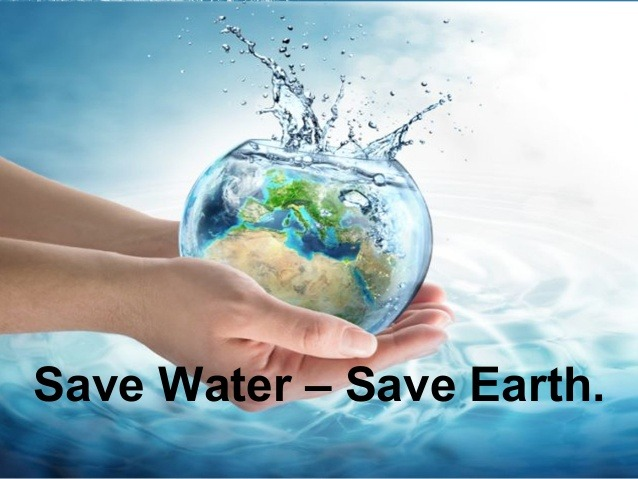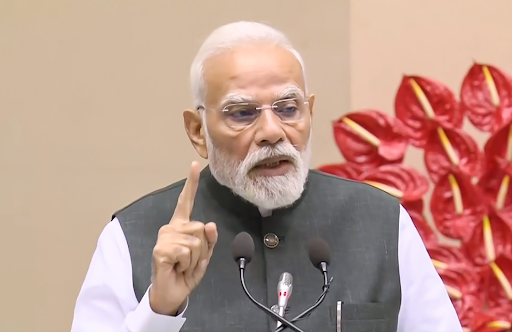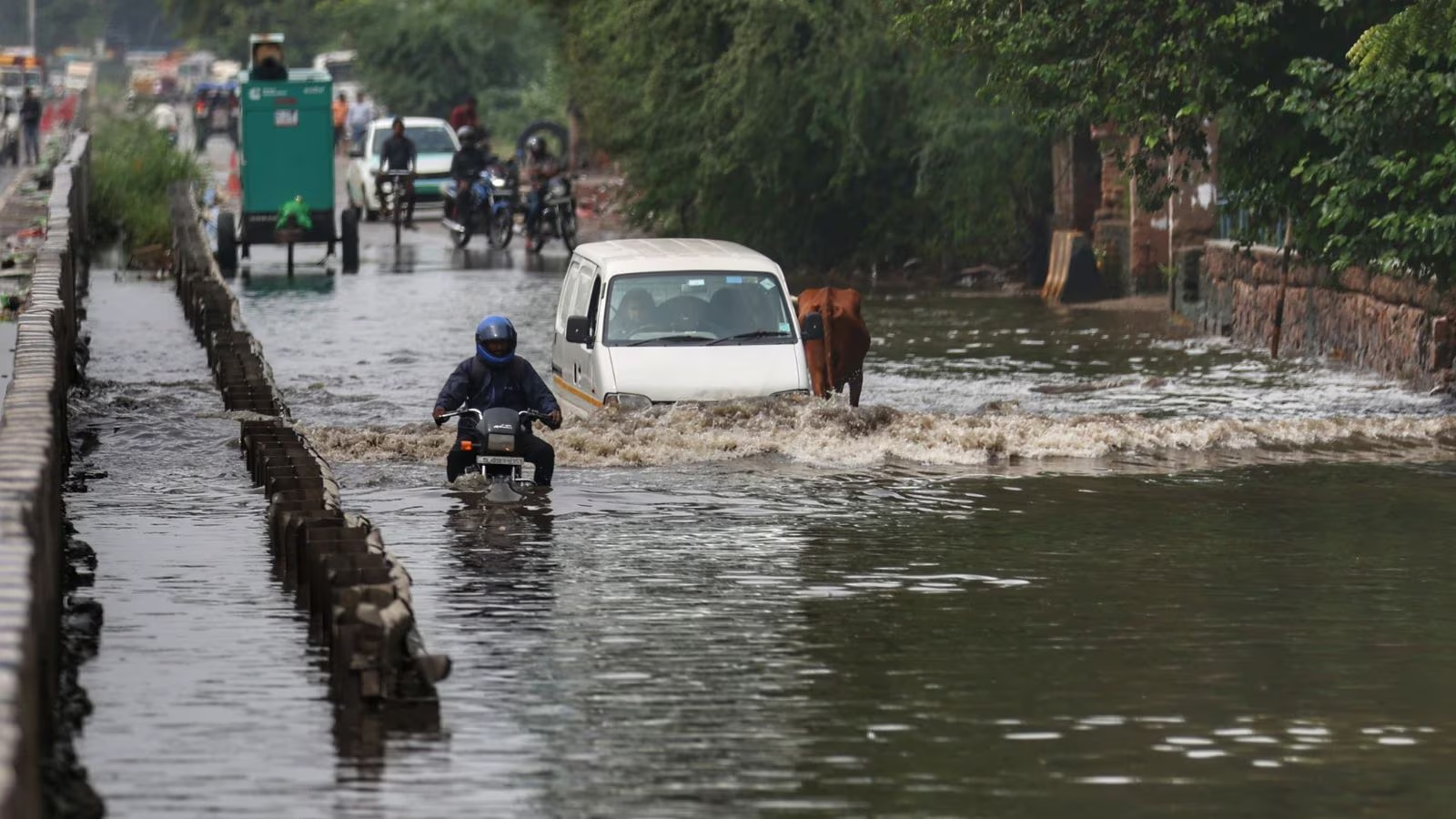Description

Context: Government of India and World Bank signed a loan agreement for the implementation of the REWARD Project.
Copyright infringement is not intended
Details:
- Government of India, State Governments of Karnataka and Odisha and World Bank have signed a loan agreement of $115 million for the implementation of “Rejuvenating Watersheds for Agricultural Resilience through Innovative Development” (REWARD) Project.
About REWARD Project:
- Rejuvenating Watersheds for Agricultural Resilience through Innovative Development or REWARD Project was initiated by the Department of Land Resources, under the Ministry of Rural Development.
- The main objective of the project is to improve land and water conservation and climate resilience, and strengthen capacities of institutions.
- The project aims to Support Institutional reforms and adopt a science based approach to improve watershed management practices.
- Reforms in Institutional architecture for watershed development will offer new opportunities for farmers.
- It will prevent soil erosion, support the growth of natural vegetation, promote rainwater harvesting, and recharging of groundwater.
- The project will provide sustainable livelihood opportunities to the people residing in the watershed area.
Expected Outcome:
- The Project will help national and state institutions to adopt improved watershed management practices.
- It will strengthen farmers’ resilience to climate change; also promote higher productivity and better incomes.
- The project will support India’s commitment to restore 26 million hectares of degraded land by 2030 and doubling farmers’ income by 2023.
- Effective watershed management can promote livelihood opportunities in rainfed areas, and also ensure food security by increasing total production; this will support the government vision of ‘AtmaNirbhar Bharat’.
- The new program will help State governments to ensure effective watershed planning and execution and adopt scientific methods to improve efficiency of the program.
- The COVID-19 pandemic highlighted the need for a sustainable agriculture ecosystem in India which must protect farmers from climate uncertainties and support their livelihood opportunities.
Concerns related to water management:
- India has nearly 18% of the global population, but only 4% of the world’s fresh water.
- According to the NITI Aayog report, about 80 Crore Indians face water Scarcity and about 2 lakh people die every year due to inadequate access to Safe water.
- Food Security: Population of India will be more than 1.5 billion people by 2030. Achieving food Security for this rising Population becomes more difficult with water Scarcity.
- Urban Sustainability: No Indian City Supplied 24x7 water to its entire urban Population, and only 35% of urban households in India had piped water.
- Economic risks: Water Shortages Can hamper industrial operations
- Biodiversity risks: Biodiversity is impacted by human activities undertaken to Create additional water Sources. These activities include dam Construction and river diversion which Can lead to Changes in water flow, Salinity levels, and monsoon Patterns.
- Scarcity of Potable water, Inadequate Supplies, irregular water Supply, Illegal Connections.
- Contamination from solid and liquid waste from industries and human settlements.
- Falling Groundwater tables, poor water quality, presence of excess fluoride, salinity and nitrates.
Steps taken by for water management:
- Government of India launched Jal Shakti Abhiyan with a mission mode approach intended to improve water availability including ground water conditions in the water stressed blocks in India.
- National Water Policy (2012) has been formulated by the Department of Water Resources for the conservation of river, river bodies and infrastructure in a scientifically planned manner through community participation.
- Central Ground Water Authority has been constituted under the “Environment (Protection) Act, 1986” for the purpose of regulation and control of ground water development and management in the Country.
- Master Plan for Artificial Recharge to Groundwater 2020 has been prepared in consultation with States/UTs.
- Construction of watershed management structure under Mahatma Gandhi National Rural Employment Guarantee Scheme.
- Pradhan Mantri Krishi Sinchayee Yojana promotes water conservation and management, water harvesting, soil and moisture conservation, groundwater recharge, flood protection, land development.
- Atal Bhujal Yojana for sustainable management of ground water with community participation is being taken up in the identified over-exploited and water stressed areas in the States of Gujarat, Haryana, Karnataka, Madhya Pradesh, Maharashtra, Rajasthan and Uttar Pradesh.
Steps need to be taken:
- The Water Management program focuses on recharging underground aquifers and promoting rainwater harvesting. This improves the availability and quality of groundwater in the long run, and provides water security to all.
- Adopt Innovative Approaches to Sustainable Operation and Maintenance.
- Making Village Water and Sanitation Committee under Gram Panchayat, Involve Community members at all Stages.
- Effective Communication among all stakeholders.
- Ensure Transparency and Accountability in Governance.
- Promote and ensure maintenance services.
- Investments in creating the necessary infrastructure, developing skill.
- Empowering Women, as they face more adversities due to lack of easy access to water.
- Awareness Campaign on water conservation.
Way forward:
- India has one of the largest watershed management programs in the world. This programme will enhance this progress by adopting and applying scientific technologies, decision support tools, and knowledge exchanges.
- Government and administration should work with local communities to revive traditional water bodies, and design and construct cost-effective groundwater recharge structures; such as check dams, ponds, farm ponds, tanks, recharge wells, etc.
https://pib.gov.in/PressReleasePage.aspx?PRID=1799348









